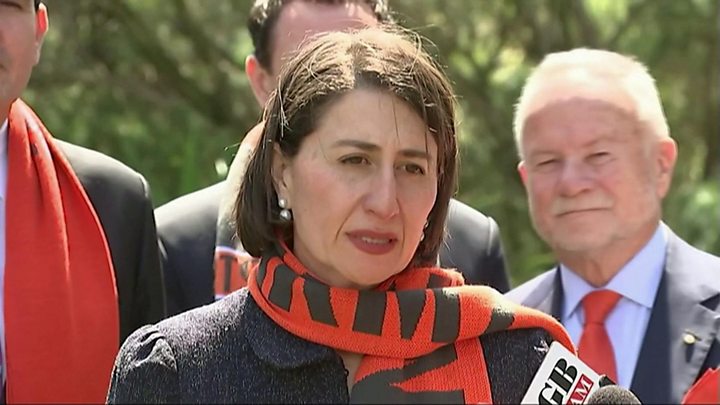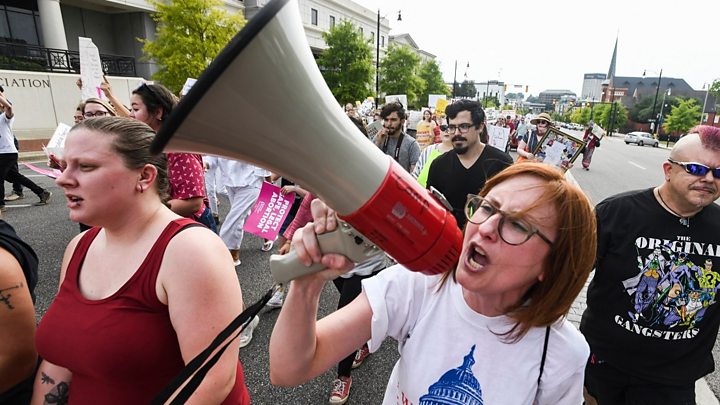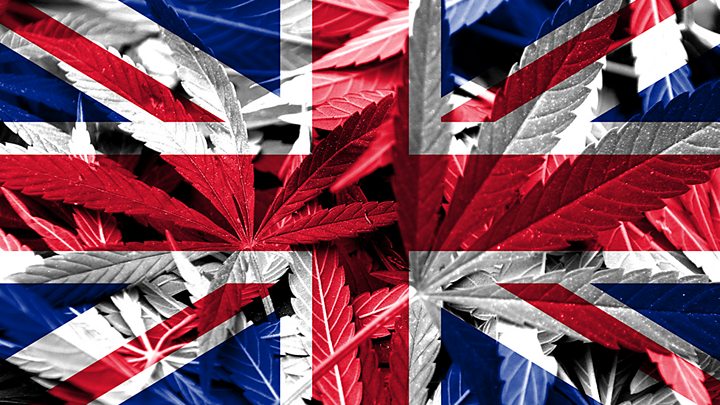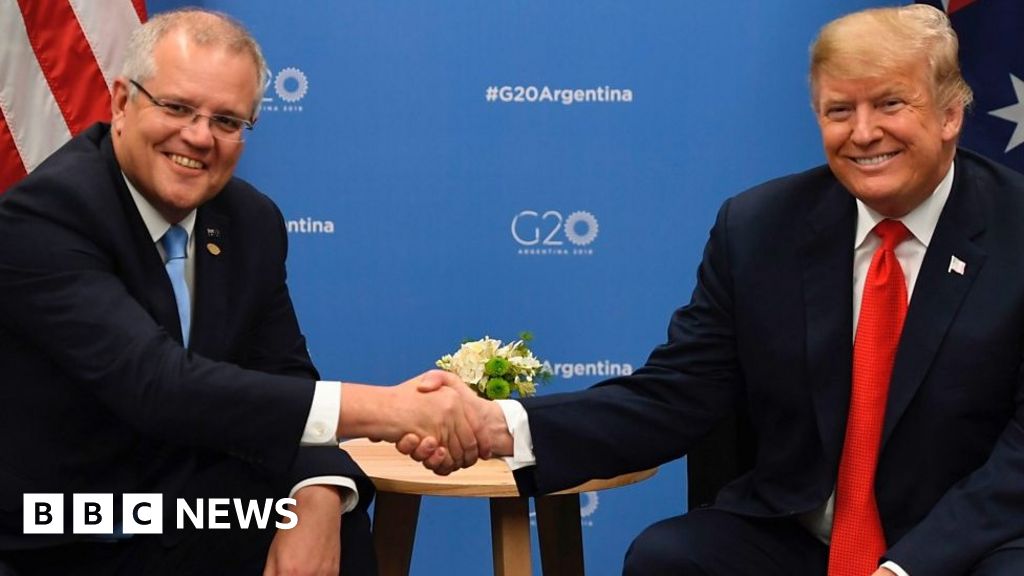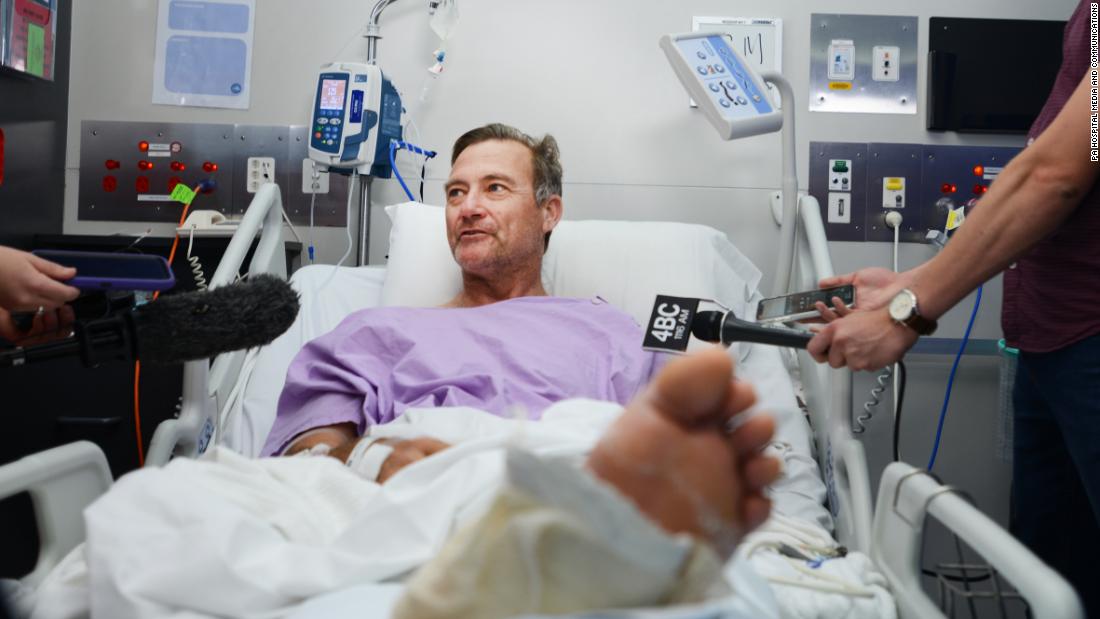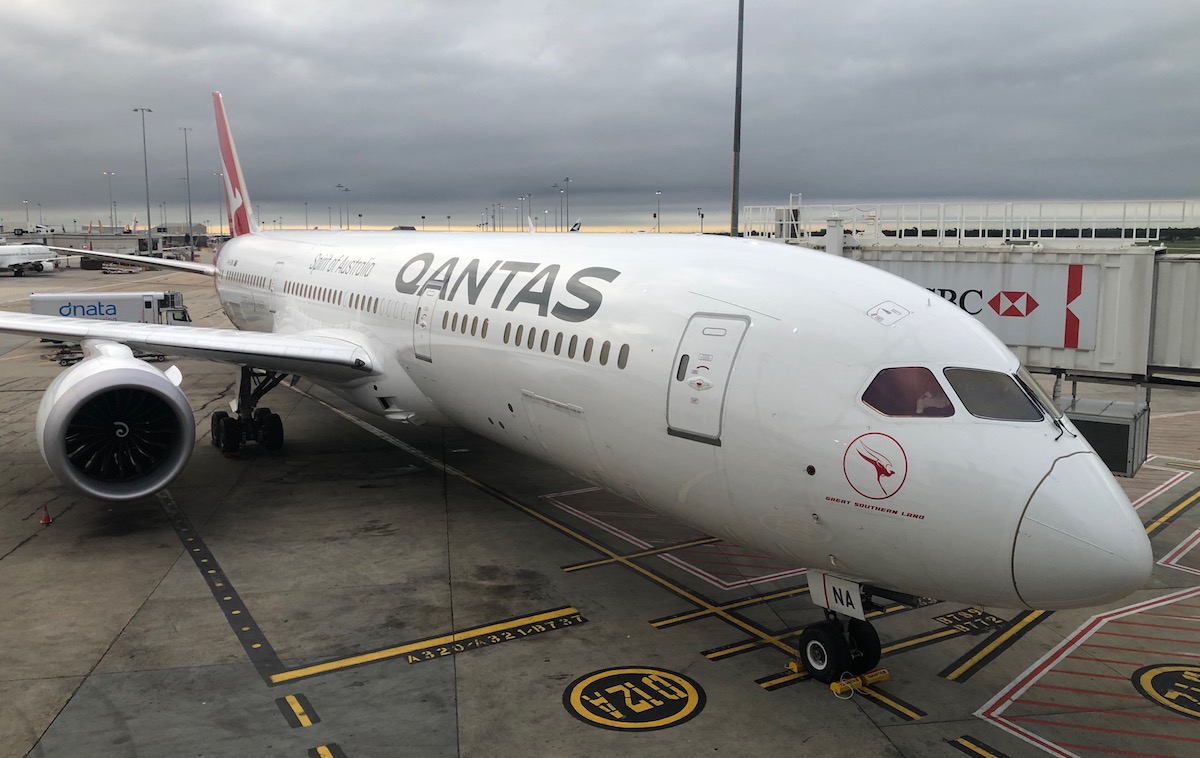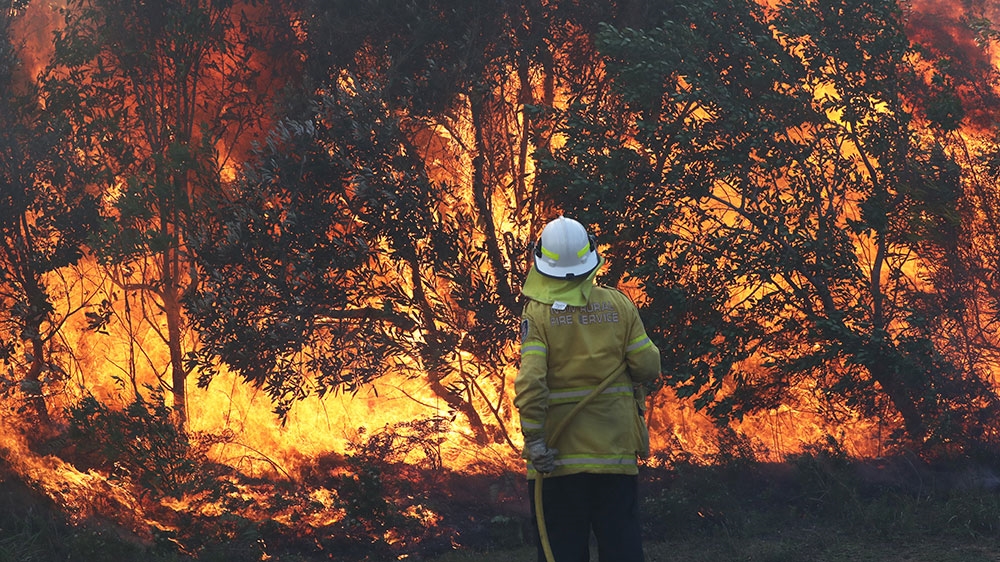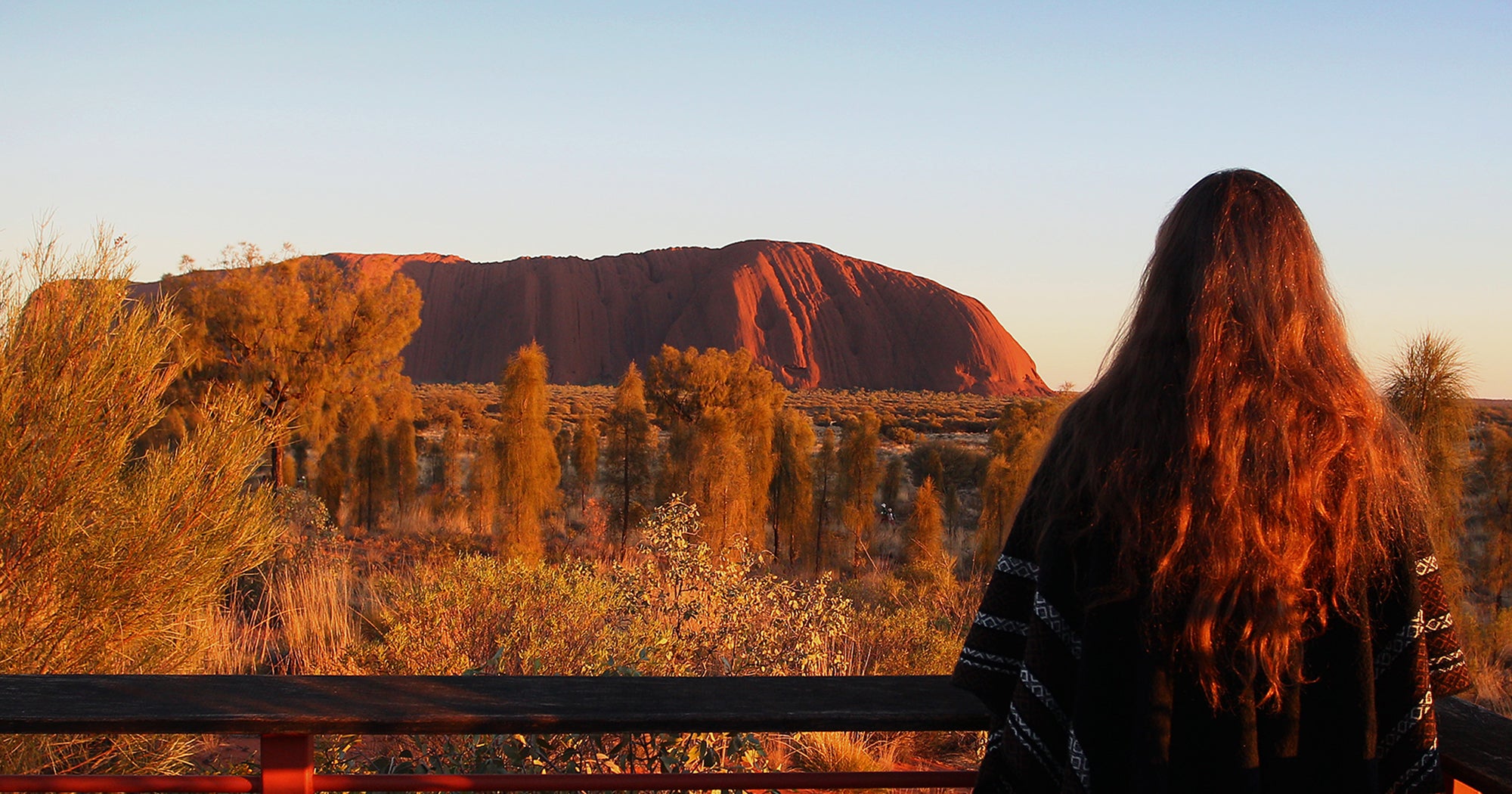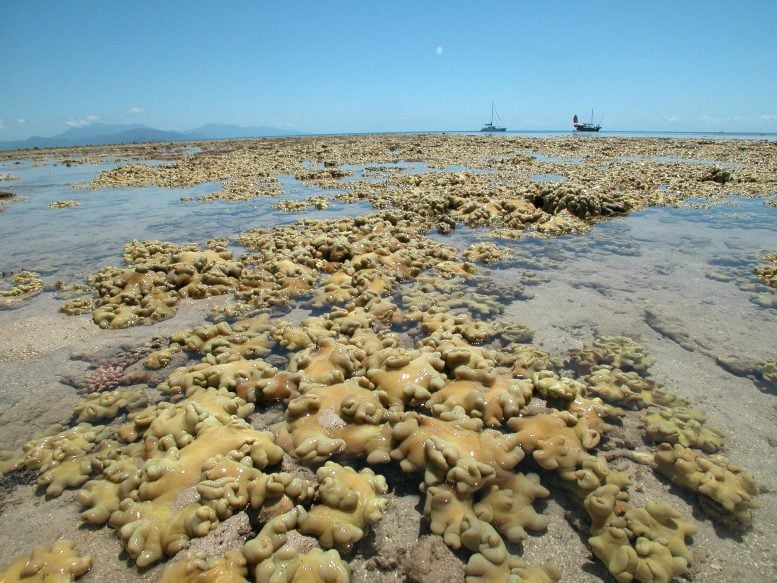
Soft coral are now dominating large areas of the shadow reef which in 1928 had many species of hard corals too. Credit: Professor Maoz Fine, Bar-Ilan University
Marine biologist Prof. Maoz Fine: ‘Following in the footsteps of the pioneers of coral reef biology and ecology was an inspirational experience.’
Coral reefs around the world are under increasing stress due to a combination of local and global factors. As such, long-term investigation is becoming increasingly important to understanding ecosystem responses.
A new study — the longest coral reef survey to date – provides an in-depth look at Australia’s Great Barrier Reef over the past 91 years. Published, yesterday (September 27, 2019) in the journal Nature Communications by researchers at Bar-Ilan University and Interuniversity Institute for Marine Sciences in Israel, and the University of Queensland in Australia, the study concludes that since 1928 intertidal communities have experienced major phase-shifts as a result of local and global environmental change, leaving few signs that reefs will return to their initial state in the near future.
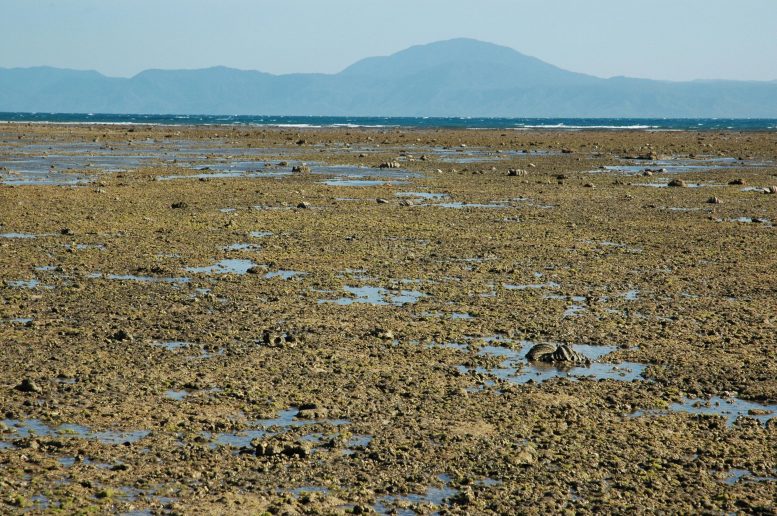
The reef-flat at the Low Isles, which was covered with living branching Acropora corals in 1928 is now mostly dead. Credit: Professor Maoz Fine, Bar-Ilan University
“This is a unique opportunity to look at long-term changes on an inshore reef system,” said author Prof. Hoegh-Guldberg from the University of Queensland. “Most studies are only a few decades in length – this one is just short of 100 years of study.”
In 1928 the Great Barrier Reef Committee and the Royal Society of London sent an expedition to study the Great Barrier Reef. Members of the expedition, pioneers in coral biology and reef studies, lived on Low Isles for over a year. During this time they documented environmental conditions surrounding the coral reefs of the Low Isles, as well as the community structure of tidal and subtidal communities, using, for the first time, a diving helmet.
“What was critical to our study was how carefully the expedition in 1928 undertook their study,” said lead author Prof. Maoz Fine, of the Mina and Everard Goodman Faculty of Life Sciences at Bar-Ilan University and the Interuniversity Institute for Marine Sciences. “We were literally able to go the exact spot and identify features that the 1928 expedition saw.”
Members of the expedition produced aerial photography-based mapping of the island. This highly-accurate mapping enabled researchers in the current study to follow in their footsteps and revisit and sample the exact intertidal and subtidal locations previously explored 76, 87 and 91 years later, thereby forming the longest ecological survey to date.
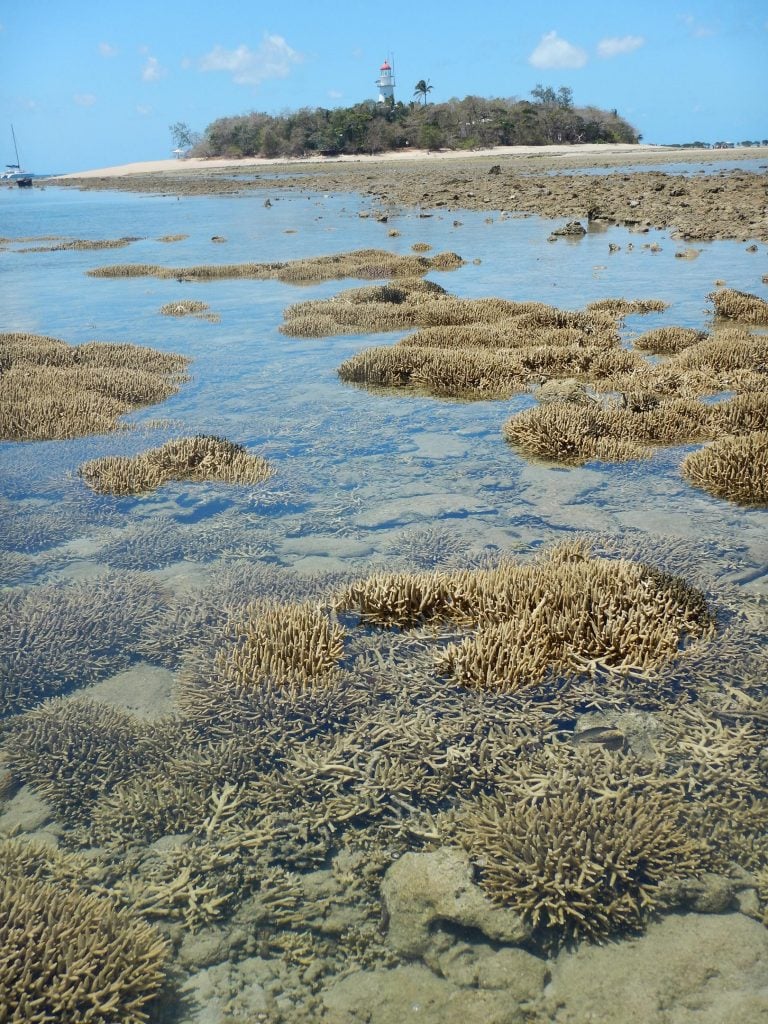
These are patches of branching Acropora corals during low tide at Low Isles. Credit: Professor Maoz Fine, Bar-Ilan University
In the latest investigation, carried out in three phases in 2004, 2015 and 2019, researchers discovered that intertidal communities have experienced major phase-shifts over nearly a century. Species richness and diversity of these communities systematically declined for corals and other invertebrates. Specifically, massive corals have replaced branching corals, and soft corals have become much more numerous.
“The degree to which reefs may shift from one state to another following environment change was overwhelming,” said Prof. Fine. “The long-term implications of these changes highlight the importance of avoiding phase shifts in coral reefs which may take many decades to repair, if at all.” According to Fine the multi-year study also illustrates the importance of considering multiple factors in the decline, and potential recovery, of coral reefs, and the importance of tracking changes in community structure, as well as coral abundance, over long periods.
Coral reefs are highly sensitive to environmental change. Multiple stressors, in isolation or in combination, may lead to dramatic deterioration that can result in loss of reefs and their ecological services for many years. In the future the researchers hope to use the same methods to reconstruct data from other parts of the world where historical expeditions accurately documented similar communities.
Reference: “Ecological changes over 90 years at Low Isles on the Great Barrier Reef” by Maoz Fine, Ove Hoegh-Guldberg, Efrat Meroz-Fine and Sophie Dove, 27 September 2019, Nature Communications.
DOI: 10.1038/s41467-019-12431-y
Let's block ads! (Why?)
https://scitechdaily.com/new-study-reveals-dramatic-changes-in-australias-great-barrier-reef/
2019-09-28 11:04:35Z
CBMiXWh0dHBzOi8vc2NpdGVjaGRhaWx5LmNvbS9uZXctc3R1ZHktcmV2ZWFscy1kcmFtYXRpYy1jaGFuZ2VzLWluLWF1c3RyYWxpYXMtZ3JlYXQtYmFycmllci1yZWVmL9IBYWh0dHBzOi8vc2NpdGVjaGRhaWx5LmNvbS9uZXctc3R1ZHktcmV2ZWFscy1kcmFtYXRpYy1jaGFuZ2VzLWluLWF1c3RyYWxpYXMtZ3JlYXQtYmFycmllci1yZWVmL2FtcC8




